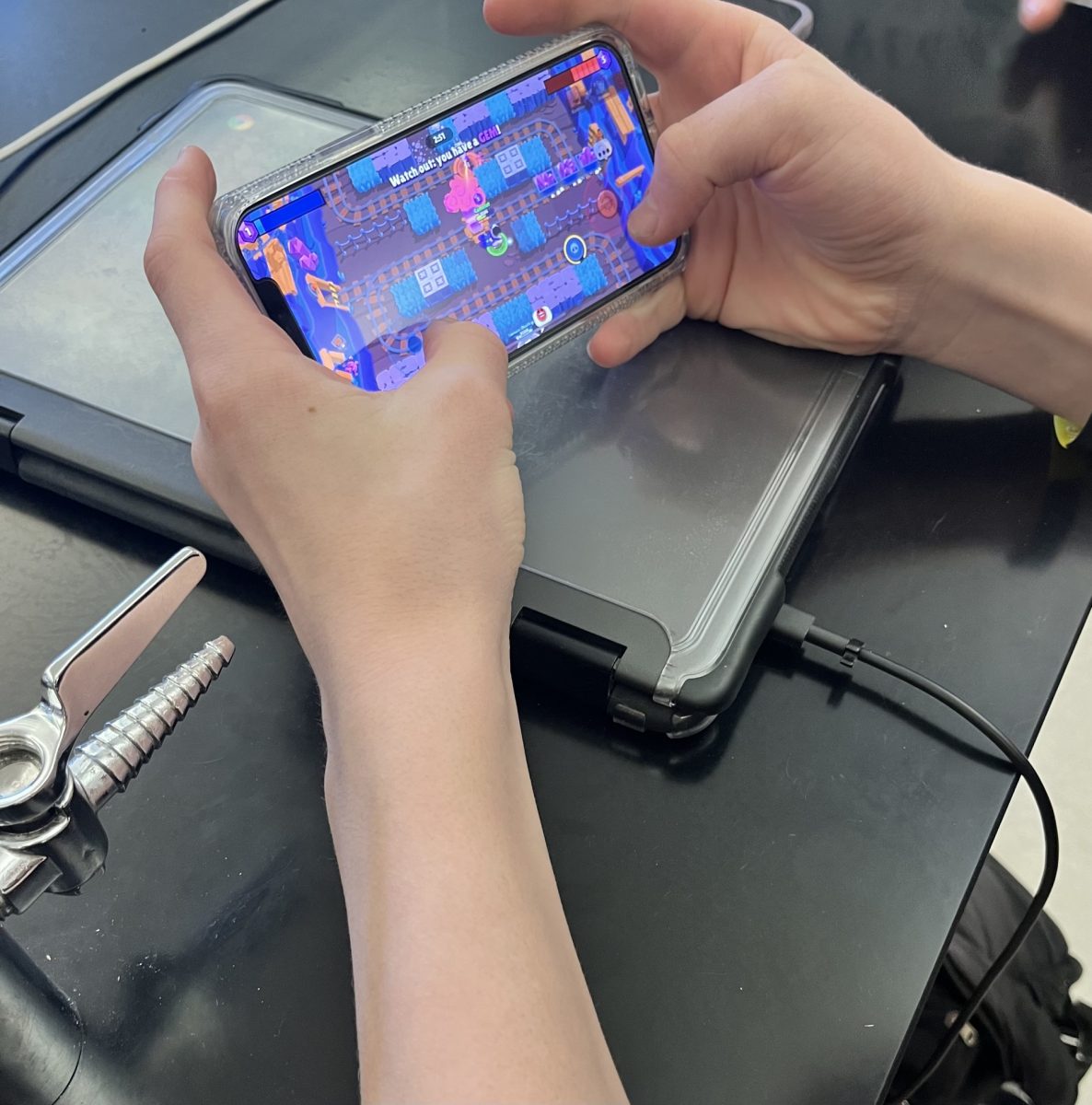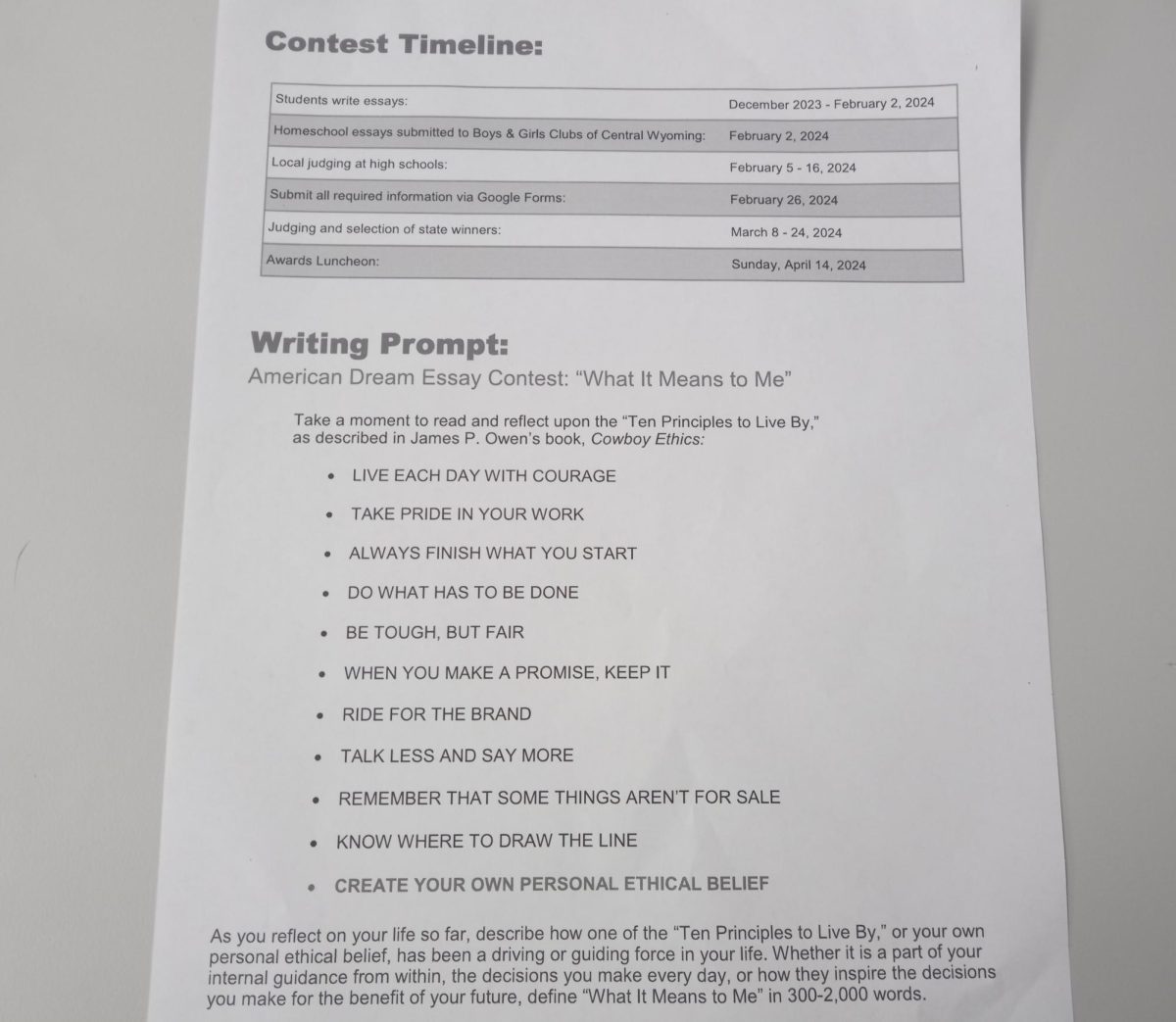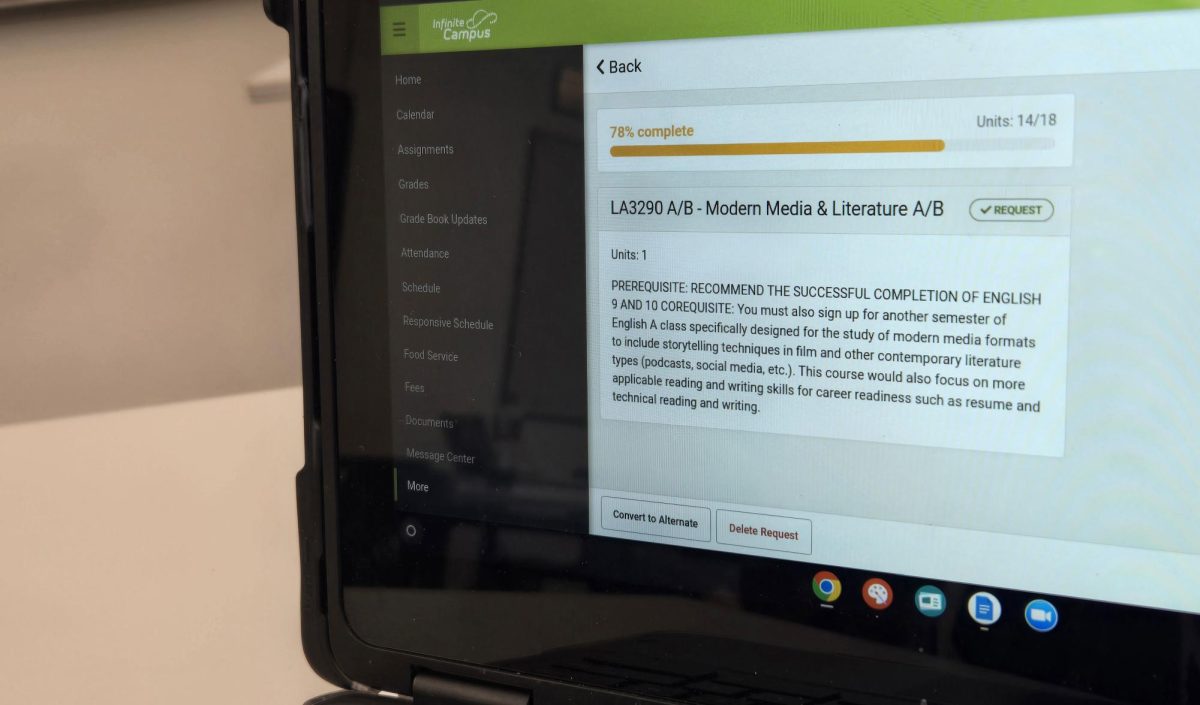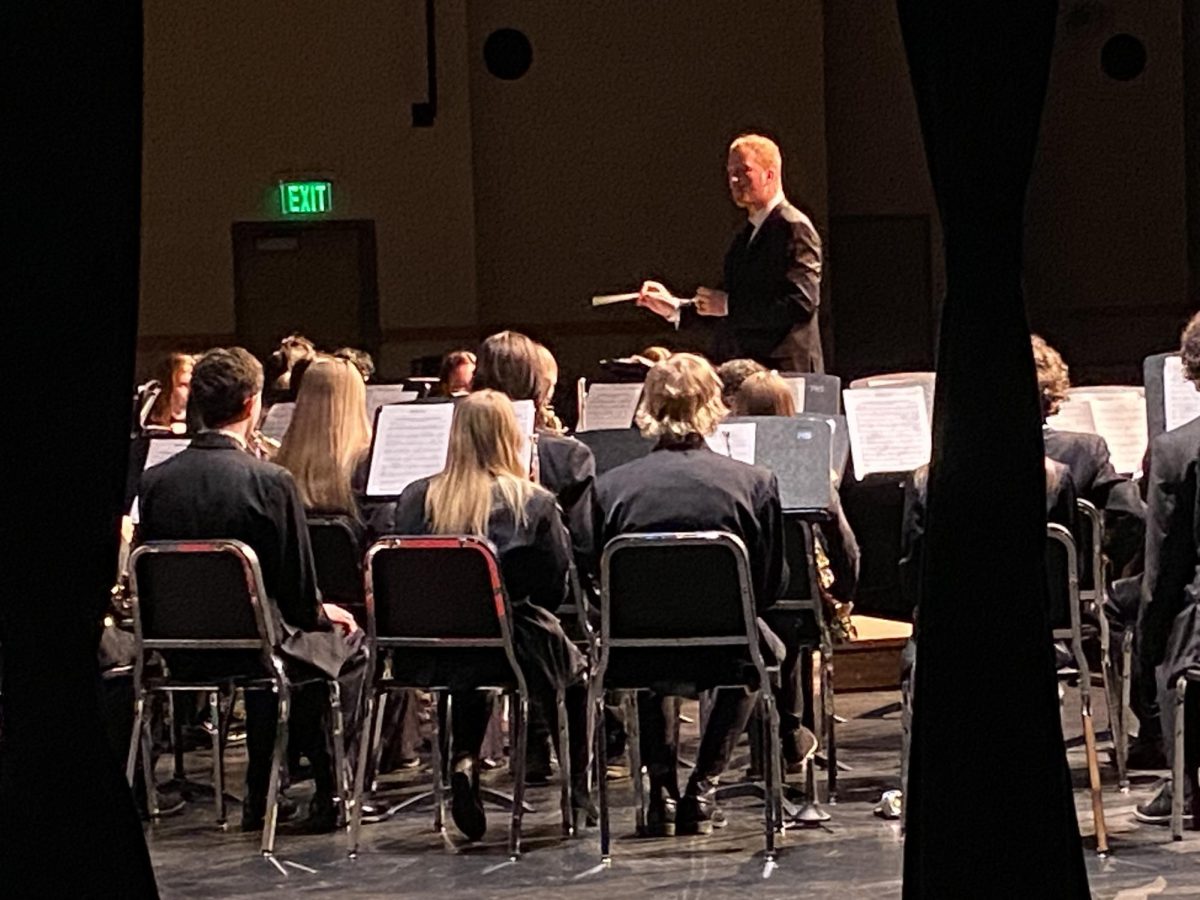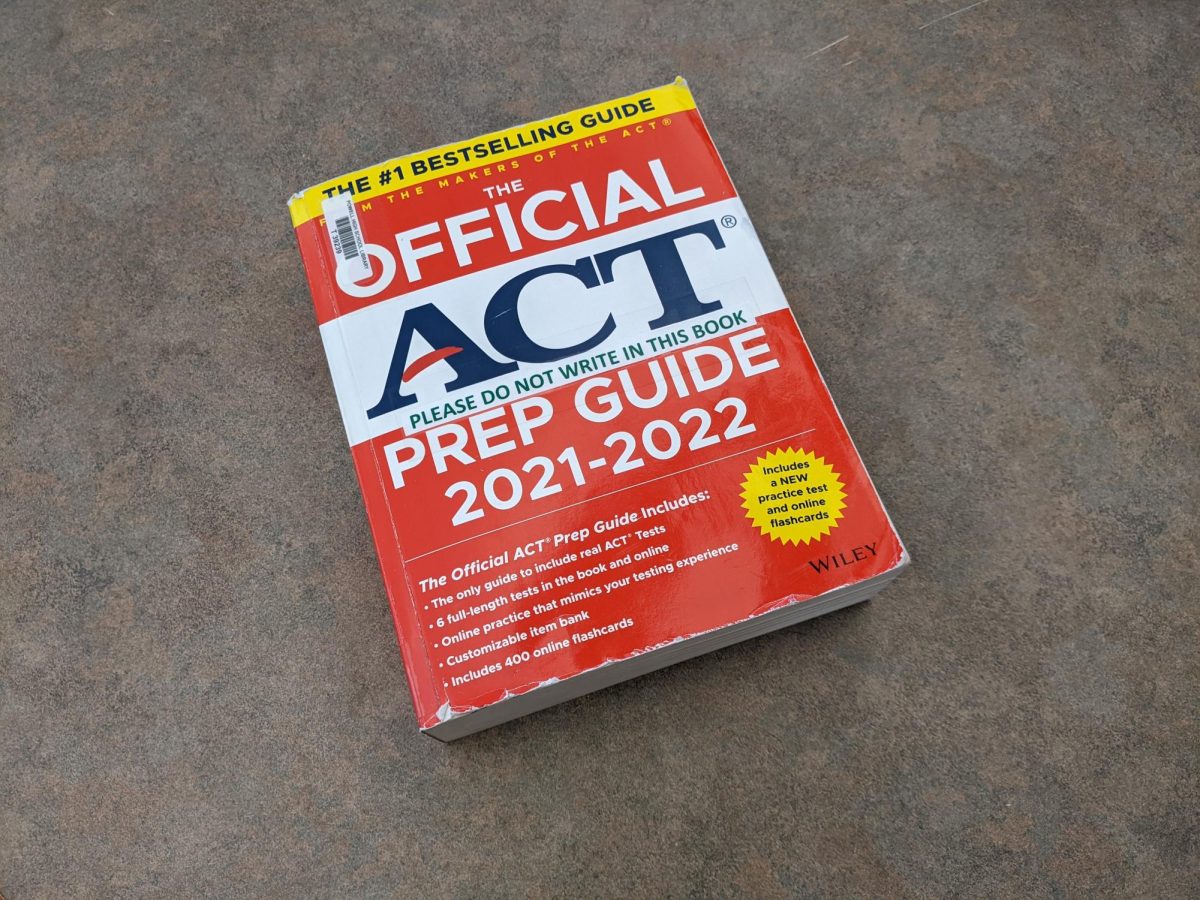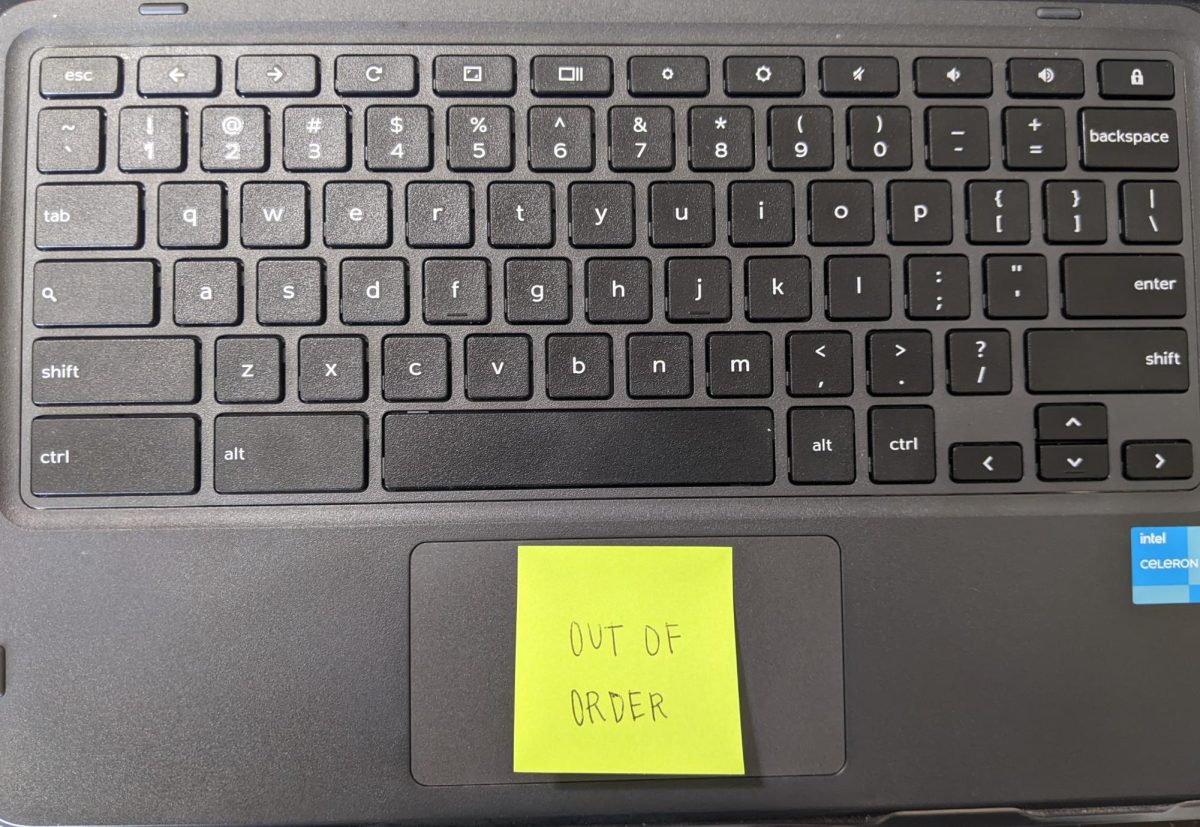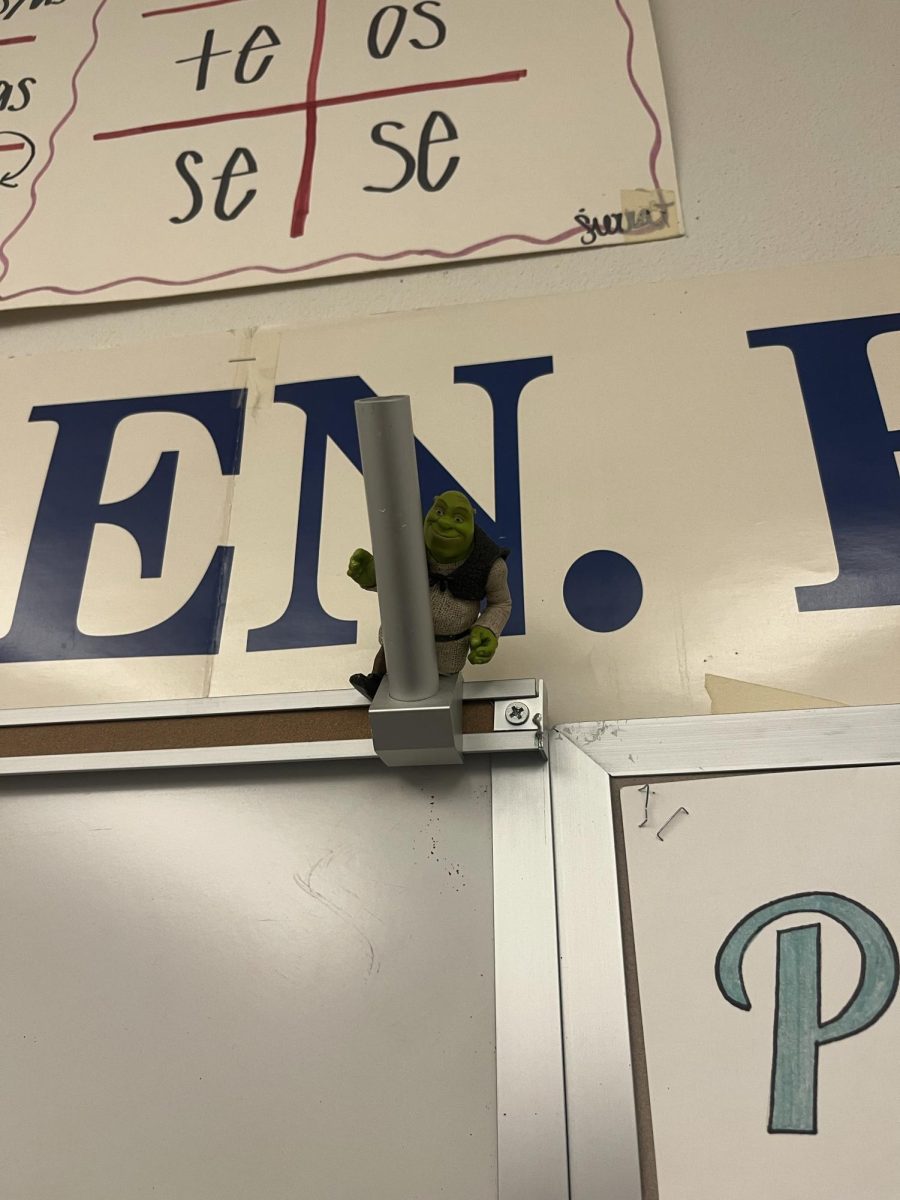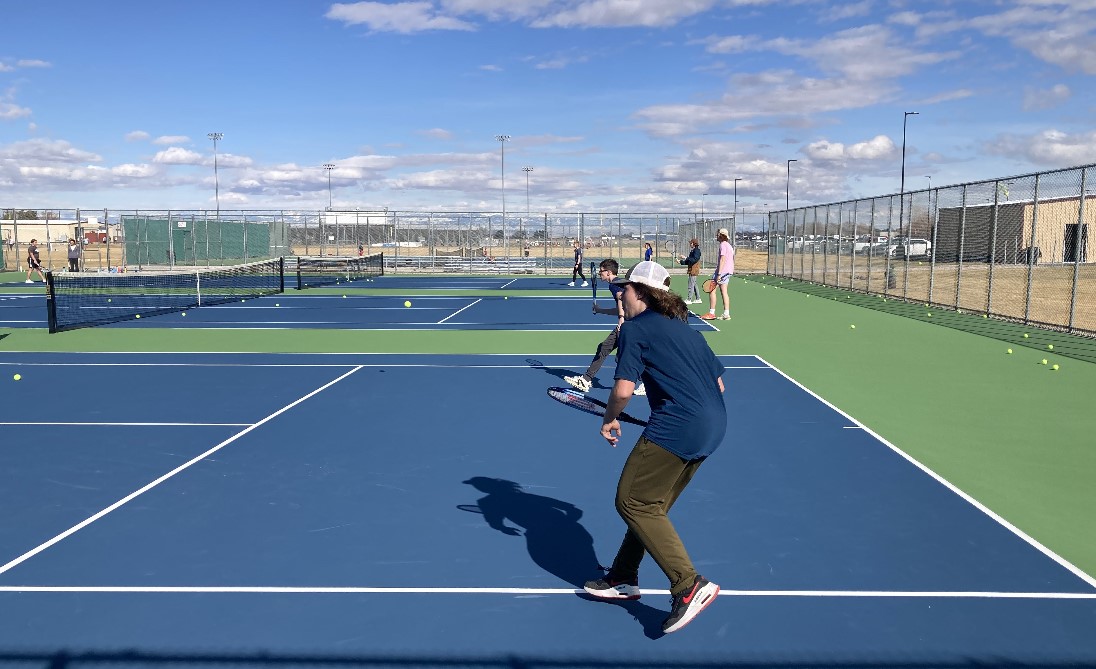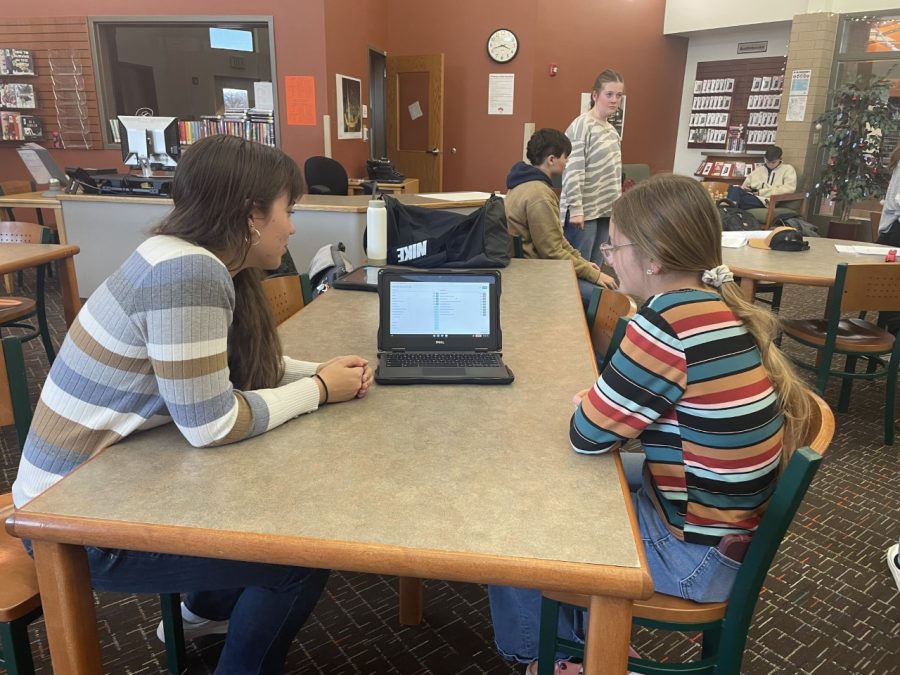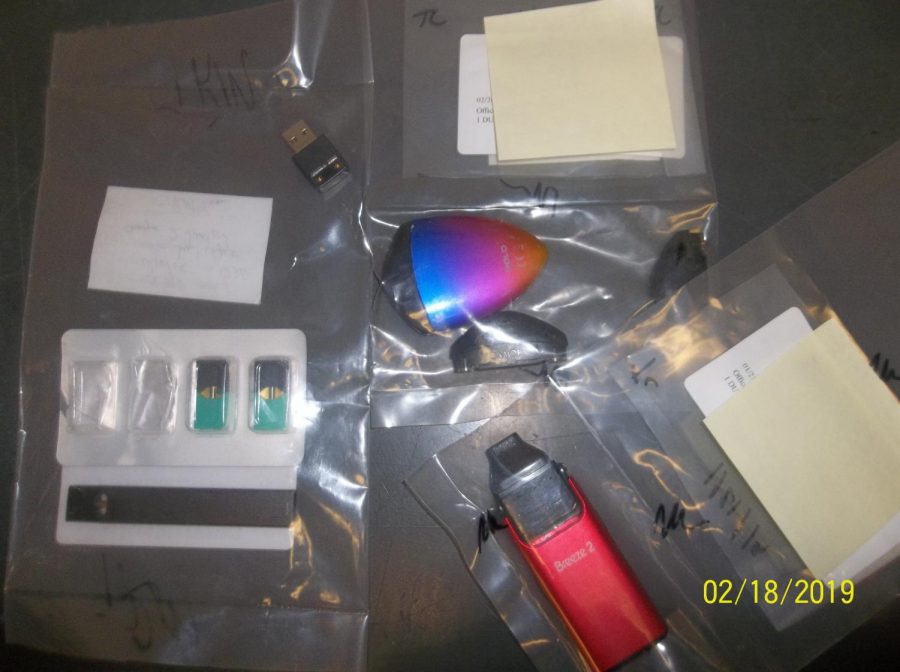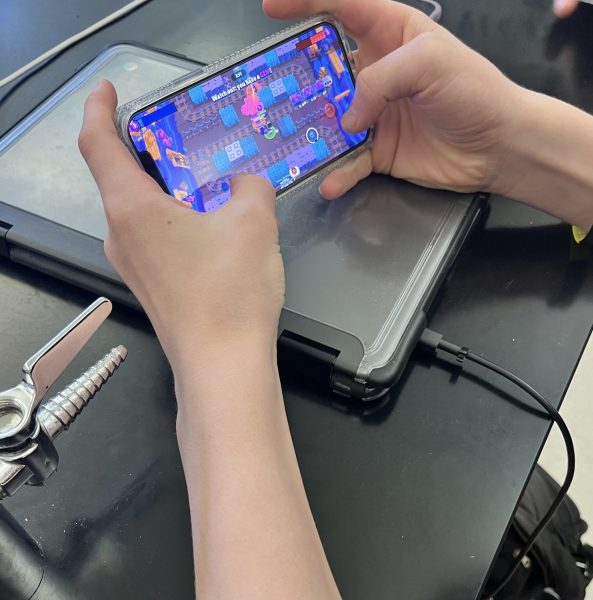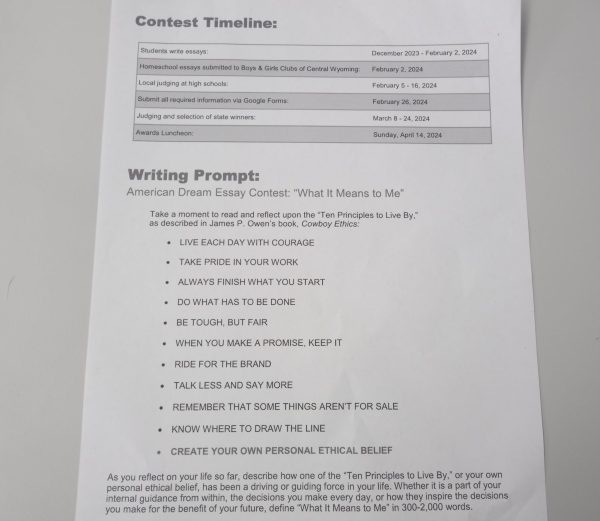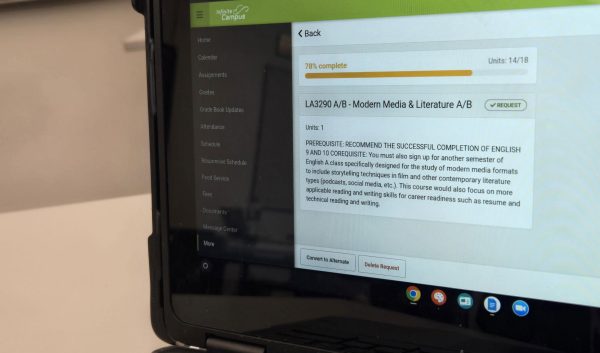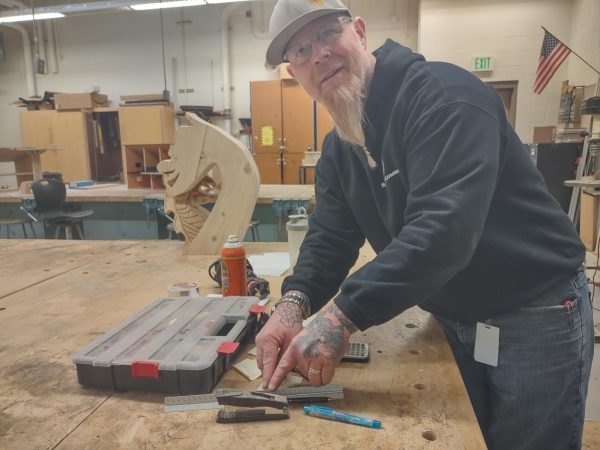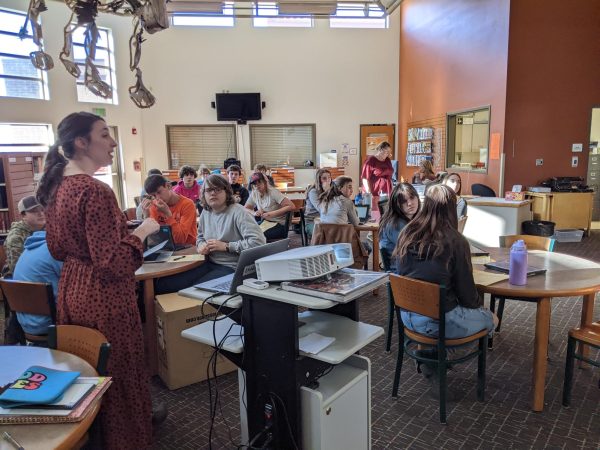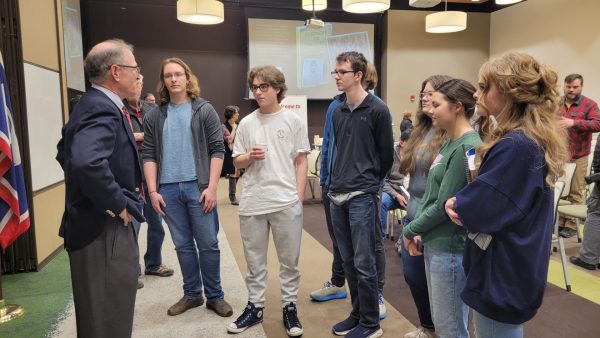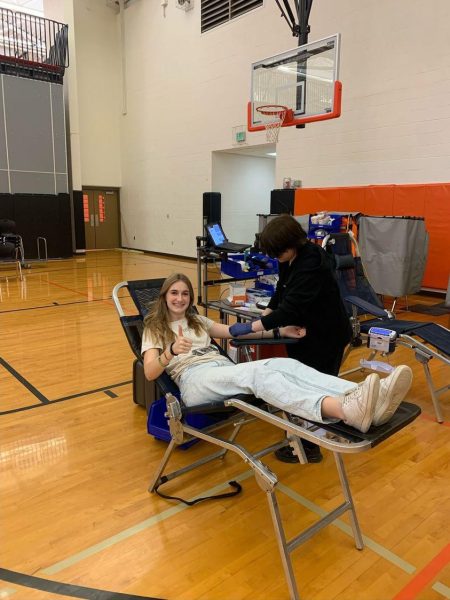CONTINUED VAPING BRINGS CONSEQUENCES
Rocky Mountain High School adjusts to the new rules set in place to control vaping
Different types of vapes are displayed that have been confiscated at PHS.
A fruity, candy-like scent lingers in the air and the nostalgia kicks in — you remember the days when you were a kid in a candy store. You attempt to identify where it’s coming from as you look at the students going to their vehicles after school. And then you see it, a student blaring their music as vapor escapes their mouth. You turn to keep walking and think to yourself, “Oh, it’s just another kid with a juul.”
An influx of students juuling or vaping has been on the rise at Powell High School as well as adjacent schools.
Specifically, Rocky Mountain High School has put disciplinary actions in place for all students in an attempt to alleviate the issue.
“We were first made aware of students vaping in our school in January 2019; we were getting reports that students from surrounding schools were using a new device called a ‘juul’ and that some of our students were experimenting with it,” RMHS Principal Mr. Tim Winland said. “We decided to monitor the situation and see how fast it might escalate. It escalated quickly, and by the end of February, we were getting reports several times a week from students who were seeing other students with ‘vapes’ on their person.
“As we began catching students, we realized that we needed to do something quickly to raise the awareness and to educate our staff, parents and students about vaping.”
In attempt to resolve this issue, RMHS informed the community on the issue and later created a student task force and had them brainstorm ideas.
“We began an educational campaign; we created a vaping website with information for parents about vaping, posting it on Facebook and Twitter,” Mr. Winland said. “During parent-teacher conferences, we had an informational booth with our SRO showing parents the different brands of juuls and vaping devices. We sent home a letter to the parents and a presentation was made to our school board.”
That alone didn’t seem to impact the rising problem, so the school and students took it one step further.
“To really get the attention of students and parents, we banned ‘hoodies’ in the school as they were being used as an article of clothing to vape in,” Mr. Winland said. “We then formed a student task force consisting of students from student council and other clubs to come up with ideas on how to address the problem. The problem was created by students so we wanted to use students to solve the problem.”
The problem was created by students so we wanted to use students to solve the problem.
— Mr. Winland
RMHS students had come up with multiple suggestions, ranging from more supervision and being more integral and honest about witnessing vaping to removing doors on bathroom stalls. Some students suggested more frequent drug testing, and those who test positive would have to attend an addiction and recovery program which would need to be completed before the start of the next season.
For the students who are against vaping and the effects it comes with, it’s affected them as well.
“My stance on juuling is that I am completely against it; the popularity of juuling has affected many underage kids in a very negative way,” RMHS junior Jacey Ross said. “It’s caused many problems in relations with schools, sports and other extracurricular activities. It’s taken away many privileges our school’s staff and students once had.
Although some students didn’t like the action taken at RMHS, other students think it’s a sacrifice they’re willing to make to help control the issue.
“I personally agree with the action taken to stop juuling in school, Ross said. “A lot of people are angry at the school board and staff for the decision they made, but they aren’t looking at why they made the decision in the first place. The school board and staff care about each student and they also see the problems juuling has and will cause us.
“I don’t blame the school board for wanting to keep us safe and away from the things our generation shouldn’t be doing and or starting.”
Ross also said the hoodie action likely will be effective.
“Taking away hoodies was just the first step and I think there will be many more steps following in the future. I do think the first step of taking hoodies away will slow down the problem but not solve it fully. If students are that committed and addicted, they will find other ways to juul in school. The school board has just slowed down the problem the easiest way they could for now.”
For some students, they see no point in juuling or vaping. But others see it as a different alternative to intake tobacco.
“I vape because it is nowhere near as bad as smoking or chewing, which I used to do both and it costs a lot less,” said senior Trace Jester, who is 18. “I’m smart enough to know [vaping on school grounds] is a very dumb idea and not worth it.”
Overall, this issue has been a nationwide dilemma with many risks involved, all with consequences, health-wise in the long run and school-related if you happen to vape on school grounds.
“Juuling/Vaping is a nationwide problem and has a big impact on our youth right now,” School Resource Officer Mr. Trevor Carpenter said. “Like any new ‘cool’ trend, it takes time for people to realize its not healthy and not worth the risks.”
Powell High School staff and administration attempt to reduce the issue but still face obstacles that this rising trend has come with. However, law enforcement and PHS aim to counteract the issue by educating students, parents and PHS staff.
“My involvement with vaping cases here at PHS, has gone down a little since Christmas break, but it’s hard to say that is from the actions taken by the school and Powell Police Department or if students are getting smarter or more sneaky on where and when the decide to vape,” Officer Carpenter said. “In order for the vaping to stop, it has to start with the students.”


